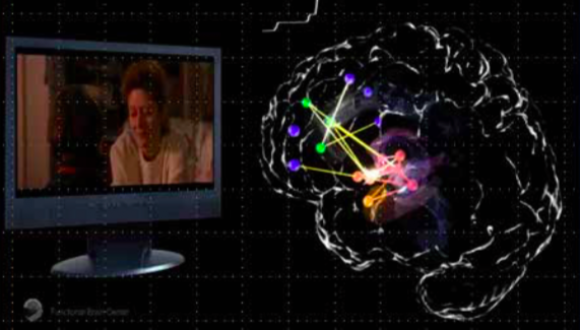Brain Mechanisms of Human Emotion Generation & Regulation
Prof. Talma Hendler, M.D., Ph.D.
Department of Physiology and Pharmacology
Prof. Talma Hendler, M.D., Ph.D.
Department of Physiology and Pharmacology
Investigating brain mechanisms underlie generation and regulation of the human emotional experience, in healthy and pathological states. The research is based on measuring indices of brain structure and functional dynamics via MRI (functional-MRI, DTI and Volumetric-MRI) and separate or simultaneous recording of electrical signals (scalp-EEG and intracranial-EEG).
The characterization of individual brain response is based on correlating neural activity and connectivity with behavioral and physiological measurements of emotionality (e.g. heart rate, hormone secretion, genetic expression, skin conductance, eye movements and verbal output). Induction of emotional states is achieved via film and music media, inter-personal interactions, and interactive social games. Regulation of emotions is modulated via on-line feedback protocols from brain signals in a closed loop set-up (i.e. NeuroFeedback).
The lab is also involved in studies aim to advance translation while focusing on neural markers of vulnerability and recovery with regard to post traumatic disorders (e.g. anxiety and depression), developmental disorders (e.g. schizophrenia and personality) and neurodegenerative disorders (e.g. Parkinson's Disease).
An essential part of this aspect of our work is the development of advanced new tools for acquiring and analyzing whole brain neural measurements; including applying multi-scale mapping for capturing dynamics of brain networks.


